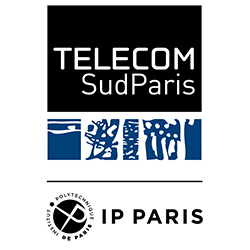New paper “IoT data qualification for a logistic chain traceability smart contract” in Sensors journal
Authors: Mohamed Ahmed, Chantal Taconet, Mohamed Ould, Sophie Chabridon, Amel Bouzeghoub
MDPI Sensors, 21 (6), 2021. https://hal.archives-ouvertes.fr/hal-03219609
Abstract
In the logistic chain domain, the traceability of shipments in their entire delivery process from the shipper to the consignee involves many stakeholders. From the traceability data, contractual decisions may be taken such as incident detection, validation of the delivery or billing. The stakeholders require transparency in the whole process. The combination of the Internet of Things (IoT) and the blockchain paradigms helps in the development of automated and trusted systems. In this context, ensuring the quality of the IoT data is an absolute requirement for the adoption of those technologies. In this article, we propose an approach to assess the data quality (DQ) of IoT data sources using a logistic traceability smart contract developed on top of a blockchain. We select the quality dimensions relevant to our context, namely accuracy, completeness, consistency and currentness, with a proposition of their corresponding measurement methods. We also propose a data quality model specific to the logistic chain domain and a distributed traceability architecture. The evaluation of the proposal shows the capacity of the proposed method to assess the IoT data quality and ensure the user agreement on the data qualification rules. The proposed solution opens new opportunities in the development of automated logistic traceability systems.
New paper “Efficient Replication via Timestamp Stability” to be presented at Eurosys’21
New paper “Efficient Replication via Timestamp Stability” to be presented at Eurosys’21. Congrats to Pierre!
New paper “FaaSCache: an opportunistic free caching system for FaaS platforms” to be presented at Eurosys’21
New paper “FaaSCache: an opportunistic free caching system for FaaS platforms” to be presented at Eurosys’21. Congrats to Mathieu!
New paper “EZIOTracer: Unifying Kernel and User Space I/O Tracing for Data-Intensive Applications” to be presented at the CHEOPS workshop of Eurosys’21
New paper “EZIOTracer: Unifying Kernel and User Space I/O Tracing for Data-Intensive Applications” to be presented at the CHEOPS workshop of Eurosys’21. Congrats to Alexis C and François!
New paper “A Transactional Approach to Enforce Resource Availabilities – Application to the Cloud” at RCIS’2021
Authors: Zakaria Maamar, Mohamed Sellami and Fatma Masmoudi
Abstract
This paper looks into the availability of resources, exemplified with the cloud, in an open and dynamic environment like the Internet. A growing number of users consume resources to complete their operations requiring a better way to manage these resources in order to avoid conflicts, for example. Resource availability is defined using a set of consumption properties (limited, limited-but-renewable, and non-shareable) and is enforced at run-time using a set of transactional properties (pivot, retriable, and compensatable). In this paper, a CloudSim-based system simulates how mixing consumption and transactional properties allows to capture users’ needs and requirements in terms of what cloud resources they need, for how long, and to what extent they tolerate the unavailability of these resources.
New paper “NVCache: A Plug-and-Play NVMM-based I/O booster for Legacy Systems” to be presented at DSN’21
New paper “NVCache: A Plug-and-Play NVMM-based I/O booster for Legacy Systems” to be presented at DSN’21. Congrats to Rémi and Gaël!
New paper “Transparent Overlapping of Blocking Communication in MPI Applications” to be presented at IEEE HPCC’20
New paper “Transparent Overlapping of Blocking Communication in MPI Applications” to be presented at IEEE HPCC’20. Congrat to Alexis, Elisabeth, François and Gaël!
New paper “Leaderless State-Machine Replication: Specification, Properties, Limits” to be presented at DISC’20
New paper “Leaderless State-Machine Replication: Specification, Properties, Limits” to be presented at Eurosys’20. Congrat to Pierre and Tuanir!
New article “Real-Time Tracking and Mining of Users’ Actions over Social Media ” at Computer Science and Information Systems
Ejub Kajan, Noura Faci, Zakaria Maamar, Mohamed Sellami, Emir Ugljanin, et al.. Real-time tracking and mining of users’ actions over social media. Computer Science and Information Systems, ComSIS Consortium, In press, pp.2-2. ⟨10.2298/CSIS190822002K⟩. ⟨hal-02514060⟩
Abstract. With the advent of Web 2.0 technologies and social media, companiesare actively looking for ways to know and understand what users think and say about their products and services. Indeed, it has become the practice that users go online using social media like Facebook to raise concerns, make comments, and share recommendations. All these actions can be tracked in real-time and then mined using advanced techniques like data analytics and sentiment analysis. This paper discusses such tracking and mining through a system called Social Miner that allows companies to make decisions about what, when, and how to respond to users’ actions over social media. Questions that Social Miner allows to answer include what actions were frequently executed and why certain actions were executed more than others.
New paper “Towards an Approach for Validating the Internet-of-Transactional-Things” at AINA’2020
Z. Maamar, M. Sellami, N.C. Narendra, I. Guidara, E. Ugljanin, and B. Banihashemi. Towards an Approach for Validating the Internet-of-Transactional-Things. In the 34-th International Conference on Advanced Information Networking and Applications (AINA-2020)
Abstract. This paper examines the impact of transactional properties, known as pivot, retriable, and compensatable, on Internet-of-Things (IoT). Despite the ever-growing number of things in today’s cyber-physical world, a limited number of studies examine this impact while considering things’ particularities in terms of reduced size, restricted connectivity, continuous mobility, limited energy, and constrained storage. To address this gap, this paper proceeds first, with exposing things’ duties, namely sensing, actuating, and communicating. Then, it examines the appropriateness of each transactional property for each duty. During the performance of transactional things, (semi)-atomicity criterion is adopted allowing to approve when these things’ duties could be either canceled or compensated. A system that runs a set of what-if experiments is presented in the paper allowing to demonstrate the technical doability of transactional things.

